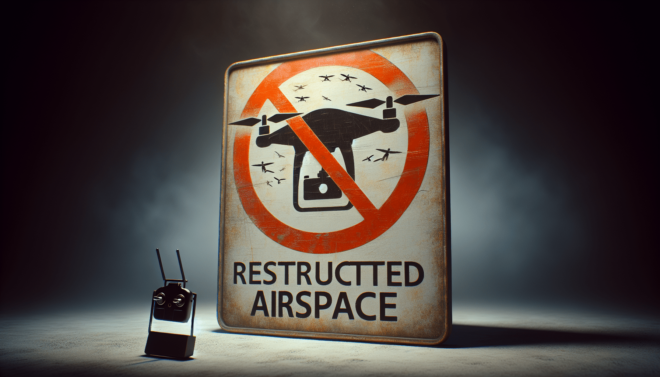What Are The Penalties For Flying A Drone In Restricted Airspace?
What are the penalties for flying a drone in restricted airspace?
Understanding Restricted Airspace
Before we delve into the penalties for flying a drone in restricted airspace, let’s first understand what restricted airspace is. Restricted airspace is designated airspace where certain flights are limited or restricted for safety and security reasons. This can include areas near airports, military bases, government buildings, and other sensitive locations.
Types of Restricted Airspace
There are several types of restricted airspace, each with its own specific rules and regulations. Some common types include:
-
Prohibited Areas: These are areas where flight is prohibited due to national security or safety concerns. Flying drones in these areas is strictly prohibited.
-
Restricted Areas: These areas have limitations on flight activities due to certain activities or events taking place. Drone flights may be restricted or prohibited in these areas depending on the circumstances.
-
Controlled Airspace: This type of airspace is typically around airports and requires permission to fly in. Drone operators must comply with air traffic control instructions in controlled airspace.
Penalties for Violating Restricted Airspace Regulations
Now that you have a better understanding of restricted airspace, let’s discuss the penalties for flying a drone in these restricted areas. The penalties for violating restricted airspace regulations can vary depending on the severity of the violation and the location of the incident.
Civil Penalties
Civil penalties for flying a drone in restricted airspace can include fines ranging from hundreds to thousands of dollars. If your drone flight poses a risk to other aircraft or individuals on the ground, you could face significant fines for endangering public safety. It is important to always follow airspace regulations to avoid costly civil penalties.
Criminal Penalties
In some cases, violating restricted airspace regulations can result in criminal charges. This can include fines, probation, and even imprisonment in severe cases. If your drone flight poses a serious threat to national security or public safety, you could face criminal charges for your actions.
Seizure of Equipment
Authorities have the right to seize your drone and any related equipment if you are found to be flying in restricted airspace without authorization. This can result in the loss of your drone and accessories, as well as additional penalties for violating airspace regulations.
How to Avoid Penalties
To avoid penalties for flying a drone in restricted airspace, there are several steps you can take to ensure you are flying legally and safely. Here are some tips to help you avoid violating airspace regulations:
Check Airspace Restrictions
Before flying your drone in any area, make sure to check for any airspace restrictions or limitations in the area. You can use apps and websites to check for current airspace restrictions and regulations to ensure you are flying legally.
Obtain Proper Authorization
If you need to fly in restricted airspace for a specific reason, such as a commercial drone operation or special event, make sure to obtain proper authorization from the appropriate authorities. This can include getting permission from air traffic control or other regulating agencies before your flight.
Maintain Line of Sight
It is important to always maintain line of sight with your drone while flying to ensure you are aware of your surroundings and any potential hazards. Flying out of your line of sight can lead to unintentionally entering restricted airspace and violating regulations.
Follow Drone Laws
Make sure to familiarize yourself with local and federal drone laws and regulations before flying your drone. This includes restrictions on altitude, distance from airports, and other limitations that may affect your flight. By following drone laws, you can avoid penalties for violating airspace regulations.
Report Violations
If you witness someone flying a drone in restricted airspace or violating airspace regulations, make sure to report the incident to the appropriate authorities. Reporting violations helps to ensure the safety and security of airspace for all drone operators and pilots.
Conclusion
In conclusion, flying a drone in restricted airspace can result in serious penalties, including civil fines, criminal charges, and seizure of equipment. It is important to understand the rules and regulations surrounding restricted airspace and take proper precautions to avoid violating airspace regulations. By following these tips and guidelines, you can fly your drone safely and legally without risking penalties for violating restricted airspace. Remember to always prioritize safety and compliance with airspace regulations to avoid penalties and ensure a positive drone flying experience.

